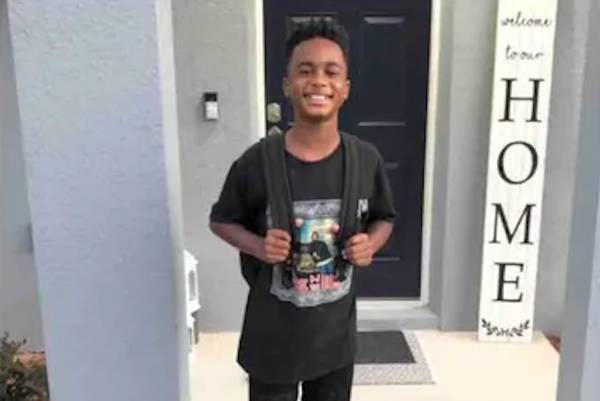
Ukraine on Wednesday dismissed comments by former German Chancellor Gerhard Schroeder that Russia wanted a "negotiated solution" to the war and said any dialogue would be contingent on a Russian ceasefire and withdrawal of its troops.
Schroeder, a friend of Russian President Vladimir Putin and increasingly derided in Germany for his pro-Russia stance, said last month's agreement on grain shipments from Ukraine, aimed at easing a global food crisis, might offer a way forward.

The first grain ship since the war began more than five months ago passed through the Bosphorus Strait on Wednesday en route to Lebanon.
"The good news is that the Kremlin wants a negotiated solution," Schroeder told Stern weekly and broadcasters RTL/ntv, adding he had met Putin in Moscow last week. "A first success is the grain deal, perhaps that can be slowly expanded to a ceasefire."
In response, Ukrainian presidential adviser Mykhailo Podolyak described Schroeder as a "voice of the Russian royal court" and made clear that the grain agreement would not lead to broader negotiations.

"If Moscow wants dialogue, the ball is in its court. First — a cease-fire and withdrawal of troops, then — constructive (dialogue)," Podolyak wrote on Twitter.
In a video address on Wednesday night, Ukrainian President Volodymr Zelenskiy also responded bitterly to the notion of talks with Russia.
"It is simply disgusting when former leaders of major states with European values work for Russia, which is at war against these values," Zelenskiy said.

Tentative attempts at peace talks in March went nowhere.
Russia is engaged in considerable military activity in the east, northeast and south of Ukraine, a statement by the General Staff of the Armed forces said on Wednesday night.
In the northeastern region of Kharkiv, where Ukrainian forces have had success in expelling Russian troops, Russian forces shelled a dozen towns with tank fire and launched air strikes, the statement said.

Shelling was also carried out near the central town of Kramatorsk, which Russian forces hope to capture as they move south, the military said. There was shelling in about eight towns and villages, it said.
Reuters was not able to immediately verify battlefield reports.
Russia has started creating a military strike force aimed at Zelenskiy's hometown of Kryvyi Rih in central Ukraine, the Ukrainian military said earlier.
BREAD BASKET
The grain agreement, brokered by the United Nations and Turkey, has been hailed as a rare diplomatic success in the war, which Russia describes as a "special military operation" to rid Ukraine of fascists, an assertion the Kyiv government and its Western allies said was a baseless pretext for an unprovoked conflict.
Zelenskiy played down the importance of the grain deal on Wednesday, saying the shipment was a fraction of the crop Kyiv must sell to help salvage its shattered economy.
The ship, Razoni, left Odesa on the Black Sea early on Monday carrying 26,527 tonnes of corn to the Lebanese port of Tripoli.
Zelenskiy, speaking via video to students in Australia, said through an interpreter that more time was needed to see whether other grain shipments would follow.
He said Ukraine, one of the world's top grain producers before the war and known as Europe's bread basket, had to export a minimum 10 million tonnes to urgently help bring down its budget deficit which was running at $5 billion a month.
A senior Turkish official said three ships could leave Ukrainian ports daily following the Razoni's departure, while Ukraine's infrastructure minister said 17 more ships had been loaded with agricultural produce and were waiting to set sail.
Ukraine's forecast for its 2022 harvest has increased to 65 million-67 million tonnes of grain from 60 million tonnes, Prime Minister Denys Shmygal said.
In a Telegram message, he praised farmers for pressing ahead with the harvest, even in areas where shelling continues.
"The war ... is almost killing the economy. It's in a coma," Zelenskiy said. "Russia's blocking of the ports is a great loss for the economy."
Zelenskiy has repeatedly said Moscow may try to obstruct exports despite signing up to the deal.
Russia, which blockaded the ports after the Feb. 24 invasion, has said it wants to see more done about the exports of its own grain and fertilisers.
It has denied responsibility for the food crisis, saying sanctions by the West have slowed its exports.
One of the companies affected by the sanctions, U.S. oil producer Exxon Mobil, is making progress exiting its stake in the Sakhalin-1 oil and gas development in the Russian Far East, a company spokesperson said.
Ukraine and Russia have traded accusations over a missile strike or explosion on Friday that appeared to have killed dozens of Ukrainian prisoners of war in the eastern frontline town of Olenivka, held by Moscow-backed separatists.
A fact-finding mission will begin into the deaths, U.N. Secretary-General Antonio Guterres said on Wednesday. It had been requested by both sides, he said.
(Reporting by Reuters bureaux; Writing by Andrew Osborn, Nick Macfie and Grant McCool; Editing by Andrew Cawthorne, Angus MacSwan and Cynthia Osterman)







